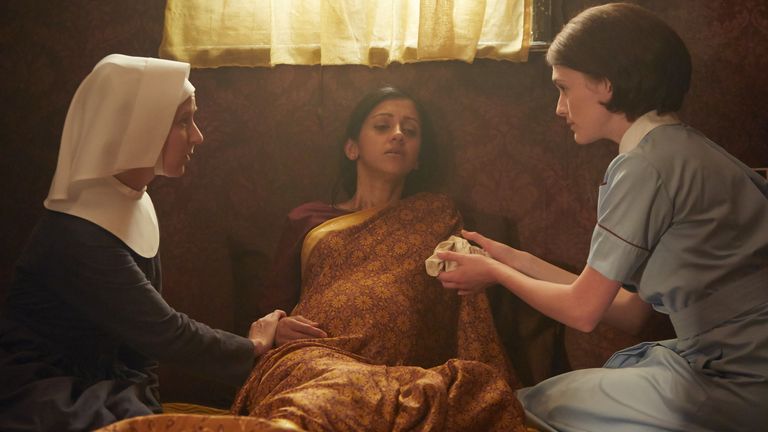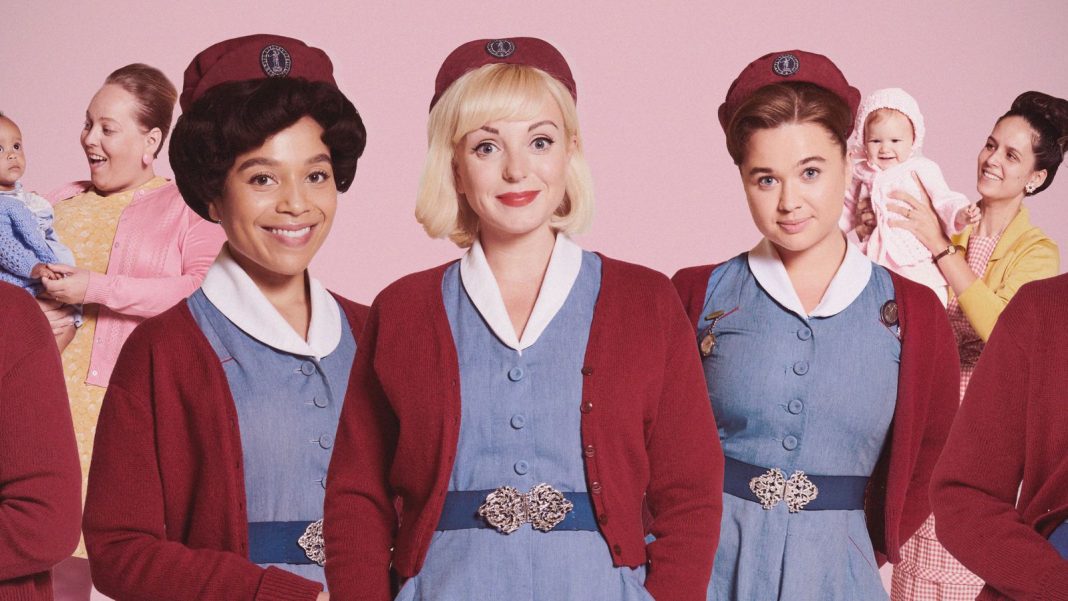BBC show Call The Midwife should come with a health warning because “outdated” and “inaccurate” birthing practices could be misinterpreted, academics claim.
A total of 87 births in 48 episodes of Call The Midwife, This Is Going To Hurt and One Born Every Minute were looked at.
They mostly compared well to guidelines from the National Institute for Health and Care Excellence (NICE).
However, a third showed inaccurate or dramatised depictions of doctors and midwives clamping (cutting) the umbilical cord.
NICE says it should not be clamped earlier than a minute after birth unless there are worries about the baby’s heartbeat or cord integrity.
But, in the episodes examined, it appeared to happen immediately or too early in 21 cases.

Pic: PBS/Everett/Shutterstock
Call The Midwife has been a big hit for the BBC since it began in 2012 and depicts a group of midwives in east London in the 1950s and 1960s.
“We are impressed that UK television shows have accurately depicted some changes in childbirth over the last century,” said Susan Bewley, professor emeritus of obstetrics and women’s health at King’s College.
“But on the other hand, they have also provided the public with a picture of poor-quality care when it comes to clamping during childbirth.
“These inaccurate depictions could influence how people see real-world care.
“We saw too early cord clamping in most televised births but no programme informed viewers about the safety aspects.”
Read more from Sky News:
BBC soap to be cancelled after 23 years
Big Brother reprimands contestant
Liverpool University’s professor of international maternal health, Andrew Weeks, also said there should be safety warnings.
“Health professionals know that midwives and doctors should not interrupt the flow of blood to the newborn baby nor separate the mother and baby without a pressing reason, and yet this is what is being shown on popular television programmes as common practice,” he said.
“Incorrect depictions like this, however routine, can lead to misinterpretations of correct practice by the public.
“This illustrates the need for safety recommendations when TV dramas show birthing practices and procedures that are outdated and inaccurate.”
A spokesperson for Call The Midwife said the show “is a drama, not a documentary, and is set half a century ago”.
“It is highly accurate to the period it depicts, and shows how childbirth has changed radically over the years,” they added.
The study is published in the journal JRSM Open.







